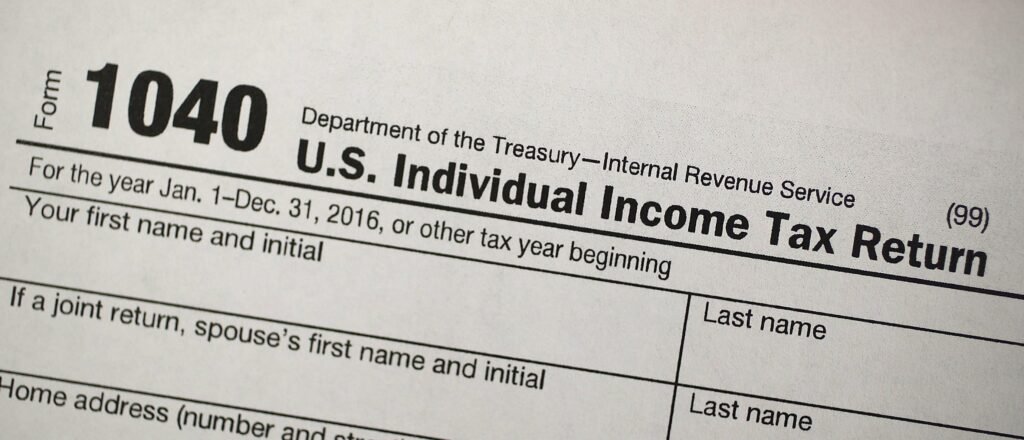The House of Representatives recently passed the American Families and Workers Tax Relief Act of 2024 with significant bipartisan support. The bill provides temporary tax breaks for businesses and families with children and claims to do so in a fiscally responsible manner. Unfortunately not. It is even more reckless to give away the next two years of taxpayers' money, leaving the impact and fiscal reform on the table. This has to stop.
This approach highlights several problems with current tax policy, including the tendency for Congress to pass interim tax provisions, spend through the tax code, and run large annual deficits. At a time when inflation is heating up and budget deficits are ballooning, the bill would require more short-term fiscal stimulus and longer-term tax increases.
The bill reduces business taxes by allowing immediate depreciation of research and development, expanding the interest expense deduction, allowing 100 percent bonus depreciation, and increasing expenses for short-term investments. Allowing companies to expense investments and amortize R&D costs would encourage investment and innovation, which would foster economic growth. However, giving companies tax incentives for past investments and research spending would reduce economic growth. Given historic debt levels, policymakers must refrain from providing inefficient government subsidies to businesses. (Related: John Stossel: Stop taxing without a reason)
Additionally, this bill makes several changes to the tax code, including increasing the maximum refundable deduction, adjusting the maximum deduction based on the number of children, and indexing the deduction for inflation. It would increase the child tax credit for households. These policies would provide economic benefits to low-income families with children. Nevertheless, the overall impact on reducing the negative effects of poverty will be limited. one third Households in the top three income quintiles receive the benefit. Policymakers need to target aid to those most in need and avoid fiscally irresponsible policies that are poorly targeted.
Another problem with this bill is the timing of the deficit it creates.Specifically, this bill would increase the deficit by approximately $150 billion For the first two years. Additional fiscal stimulus would be stimulating the economy at the wrong time as the Fed battles persistent inflation. Assume that the Fed responds by keeping the Fed rate high for an extended period of time or raising interest rates to offset the fiscal stimulus. In that case, the economy is likely to slow down. Given that excessive fiscal stimulus helped create the current inflationary environment, it would be fiscally irresponsible for Congress to add even more short-term stimulus to the economy.
As mentioned earlier, this bill is revenue neutral. Estimate Provided by the Joint Committee on Taxation. The bill would increase revenue by disallowing claims for the Employee Retention Credit (ERC) after January 31, 2024, an inappropriate pandemic-era tax policy. The use of this provision as a fiscal offset is puzzling for several reasons. First, ERC cut revenues by more than five times his original estimate. Second, this provision was so confusing that the IRS implemented a moratorium on new filings in September 2023. In testimony before the House Ways and Means Committee, IRS Commissioner Werfel said:The IRS has been inundated with ERC claims, but is concerned that many of these claims are not filed by eligible businesses.” The ERC should be terminated as soon as possible, but its savings should not be used to fund temporary government benefits. Congress needs to further strengthen its fiscal discipline. If the proposed policies are truly desirable, they should be part of well-designed fiscal reforms.
Tax reform will be a key issue in the next Congress, as many personal tax laws will be repealed at the end of 2025.The cost of extending an expiring clause is approximately $3.4 trillionHowever, if the above provisions are extended beyond 2025, this cost will increase significantly. Policymakers need to find the will to practice fiscal discipline. They should start by rejecting the urge to increase government benefits and focus instead on fiscally responsible tax and spending reforms.
John W. Diamond is a Kelly Fellow in Finance and Director of the Center on Finance at Rice University's Baker Institute.
The views and opinions expressed in this commentary are those of the author and do not reflect the official position of the Daily Caller News Foundation.
All content produced by the Daily Caller News Foundation, an independent, nonpartisan news distribution service, is available free of charge to legitimate news publishers with large audiences. All republished articles must include our logo, reporter byline, and DCNF affiliation. If you have any questions about our guidelines or partnering with us, please contact us at licensing@dailycallernewsfoundation.org.







